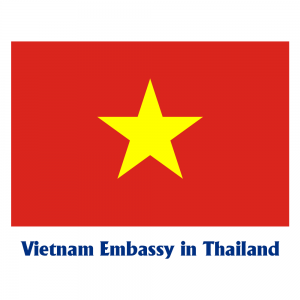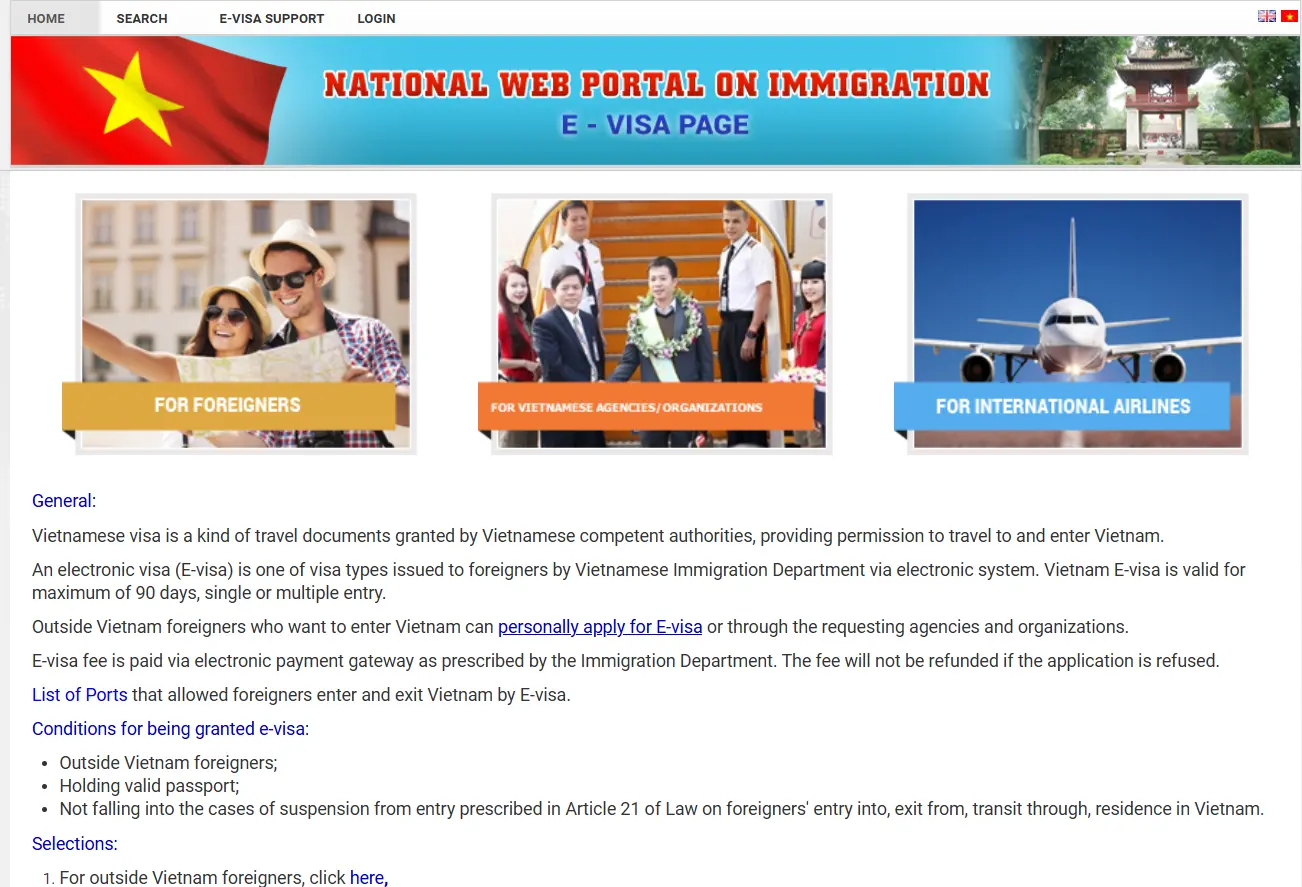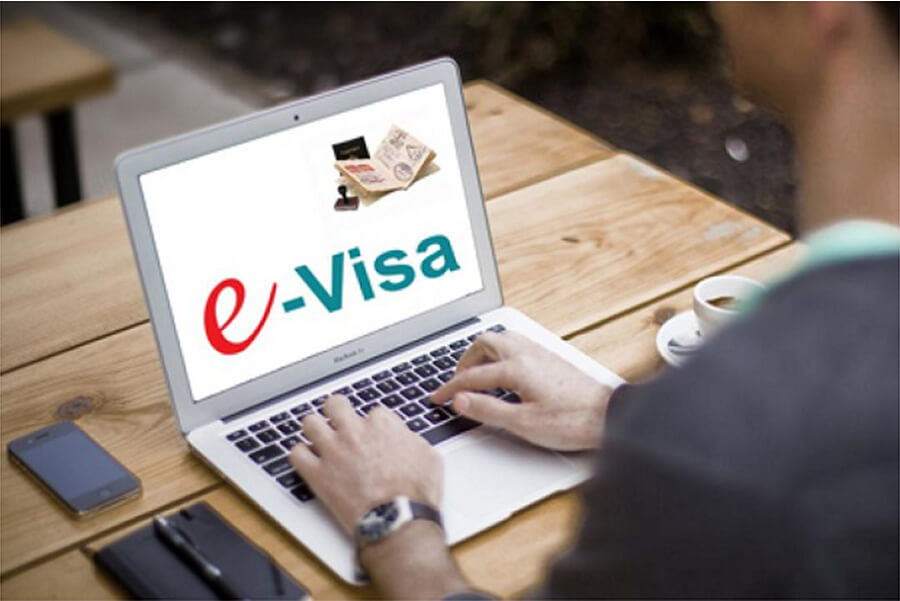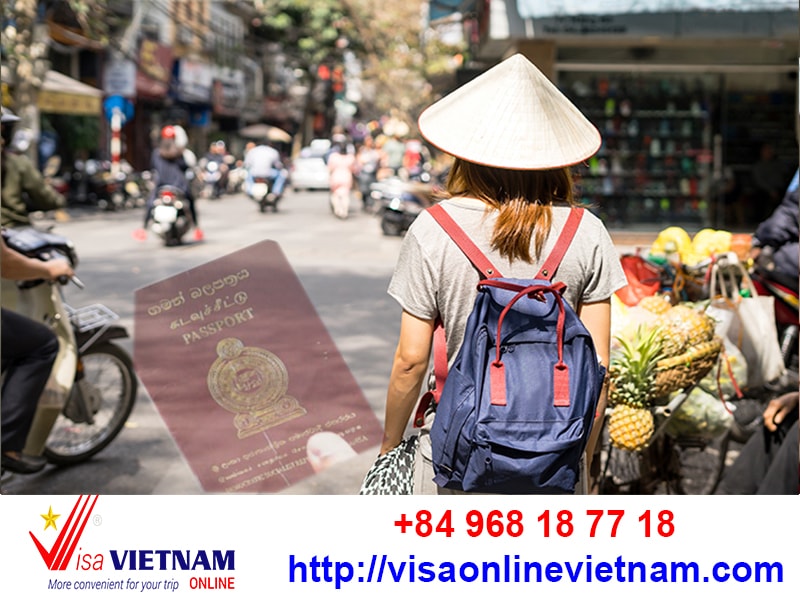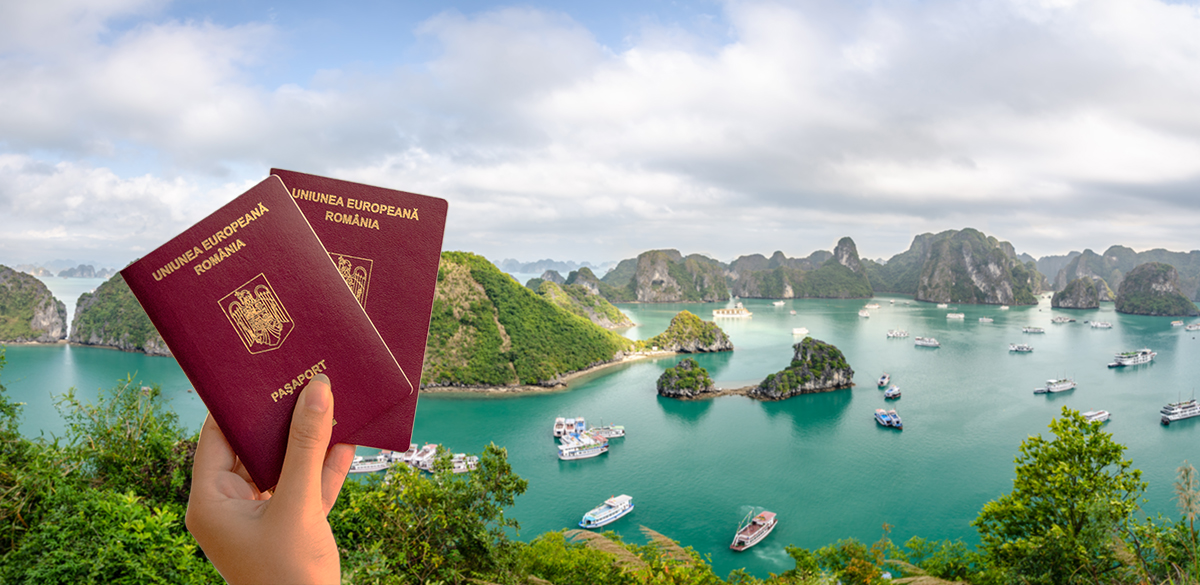
How to Easily Get a Tourist Visa to Vietnam from Canada
If you’re a Canadian eager to explore Vietnam’s vibrant culture, stunning landscapes, and rich history, knowing how to get a tourist visa to Vietnam from Canada is your first step toward an unforgettable adventure. This process, while straightforward, requires careful preparation to avoid common pitfalls and ensure a hassle-free application. In this comprehensive guide, we’ll break down everything you need to know, from eligibility and types of visas to step-by-step instructions, helping you navigate the requirements with confidence and ease.
Introduction: Understanding Vietnam Tourist Visas for Canadians
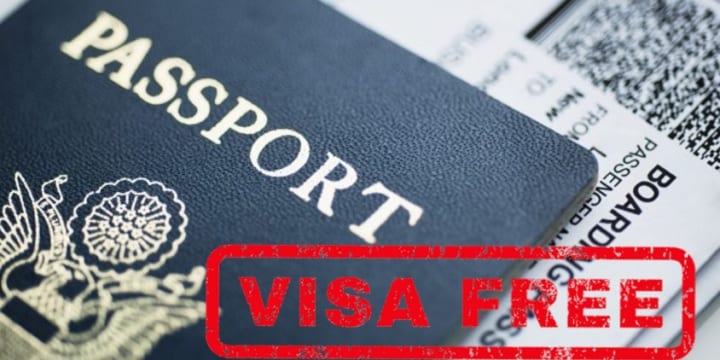
Vietnam has become an increasingly popular destination for Canadian travelers, drawn by its bustling cities, ancient temples, and pristine beaches. However, before you can immerse yourself in the country’s enchanting offerings, you must understand the visa landscape. For Canadians, obtaining a tourist visa is generally uncomplicated, but it involves specific rules set by the Vietnamese government to manage tourism and ensure national security. This section delves into the basics, highlighting why visas are necessary and how they fit into your travel plans, while offering insights into the evolving policies that affect Canadian applicants.
The Historical Context of Vietnam’s Visa Policies
Vietnam’s visa requirements have evolved significantly since the country’s doi moi reforms in the 1980s, which opened its doors to international tourism. For Canadians, this means access to streamlined processes that reflect Vietnam’s desire to boost its economy through visitors. Historically, visa-on-arrival options were rare, but recent changes have made them more accessible, especially for short-term stays. From a personal analysis perspective, this shift not only simplifies travel but also encourages cultural exchange, allowing Canadians to experience Vietnam’s dynamic blend of tradition and modernity. For instance, the introduction of e-visas in 2017 was a game-changer, reducing processing times and minimizing paperwork. However, it’s crucial to recognize that these policies can change based on bilateral relations between Canada and Vietnam, so staying updated is key. In three to four paragraphs, we’ll explore how these historical developments impact your application today, emphasizing the importance of proactive planning to avoid delays.
One major insight is that Vietnam’s visa system is designed to balance tourism growth with immigration control, which means Canadians must provide evidence of their intent to leave the country after their trip. This could include return flight tickets or hotel bookings, adding an extra layer of preparation that might not be as stringent in other destinations. Personally, I find this approach refreshing because it ensures travelers are committed to respectful and responsible tourism, preventing issues like overstays that could strain international relations. Moreover, understanding this context helps Canadians appreciate the cultural nuances of Vietnam, where hospitality is paramount, and proper documentation is seen as a sign of respect. By delving deeper, you’ll realize that preparing for a visa isn’t just about bureaucracy—it’s about setting the tone for a meaningful journey.
Another angle to consider is the role of technology in modern visa applications. With digital platforms now dominant, Canadians can apply online without visiting an embassy, a convenience that contrasts with older, more cumbersome processes. This evolution reflects global trends toward efficiency, but it also introduces challenges, such as ensuring your digital submissions are error-free. From my analysis, this digital shift empowers travelers but demands digital literacy, which not all applicants may possess. For example, a Canadian who meticulously checks their e-visa application details is more likely to succeed than one who rushes through it. Ultimately, grasping this historical and technological backdrop equips you with the knowledge to approach your visa quest with both enthusiasm and caution, turning what could be a mundane task into an informed adventure.
Finally, it’s worth noting that Vietnam’s visa policies often align with seasonal tourism peaks, such as the dry season from November to April, when applications might surge. This insight suggests timing your application strategically to avoid backlogs, a tip that’s particularly useful for Canadians planning trips during peak holiday periods. In summary, by understanding the broader context, you’re not just preparing for a visa; you’re building a foundation for a trip that’s culturally enriching and logistically smooth.
Key Benefits of Obtaining a Tourist Visa
As a Canadian, securing a tourist visa to Vietnam opens up a world of opportunities, from exploring Hanoi’s Old Quarter to relaxing on the beaches of Phuket. Beyond the obvious travel perks, this visa provides legal protection, ensuring you can access healthcare, report incidents, and engage in activities without fear of deportation. A deeper analysis reveals that these visas foster personal growth, allowing travelers to step out of their comfort zones and gain new perspectives. For instance, the visa process itself can be a learning experience, teaching patience and attention to detail that enhance your overall travel savvy.
However, the benefits extend to economic contributions; your visit supports local businesses and communities, creating a positive feedback loop. Personally, I believe that understanding these advantages motivates applicants to invest time in the process, making it more than a formality. In the next few paragraphs, we’ll unpack how these benefits translate into real-world scenarios for Canadians.
Common Challenges and How to Overcome Them
Navigating visa applications can present hurdles, such as language barriers or documentation errors, but with the right strategies, these are easily surmountable. For Canadians, challenges often stem from unfamiliarity with Vietnamese bureaucratic norms, which differ from Canada’s more relaxed systems. Through creative insights, I’ll share how adapting to these differences can lead to a smoother experience, drawing from real-world examples.
This involves proactive steps like double-checking forms and seeking advice from forums. Overcoming these obstacles not only secures your visa but also builds resilience for your trip.
Why Canadians Should Prioritize Visa Preparation
Prioritizing visa preparation is essential for a stress-free journey, as delays can disrupt your itinerary. From a personal viewpoint, this preparation phase allows Canadians to reflect on their travel goals, ensuring the trip aligns with their interests. By focusing on this early, you’ll maximize your time in Vietnam.
Eligibility Requirements for Canadian Citizens Applying for a Vietnam Tourist Visa
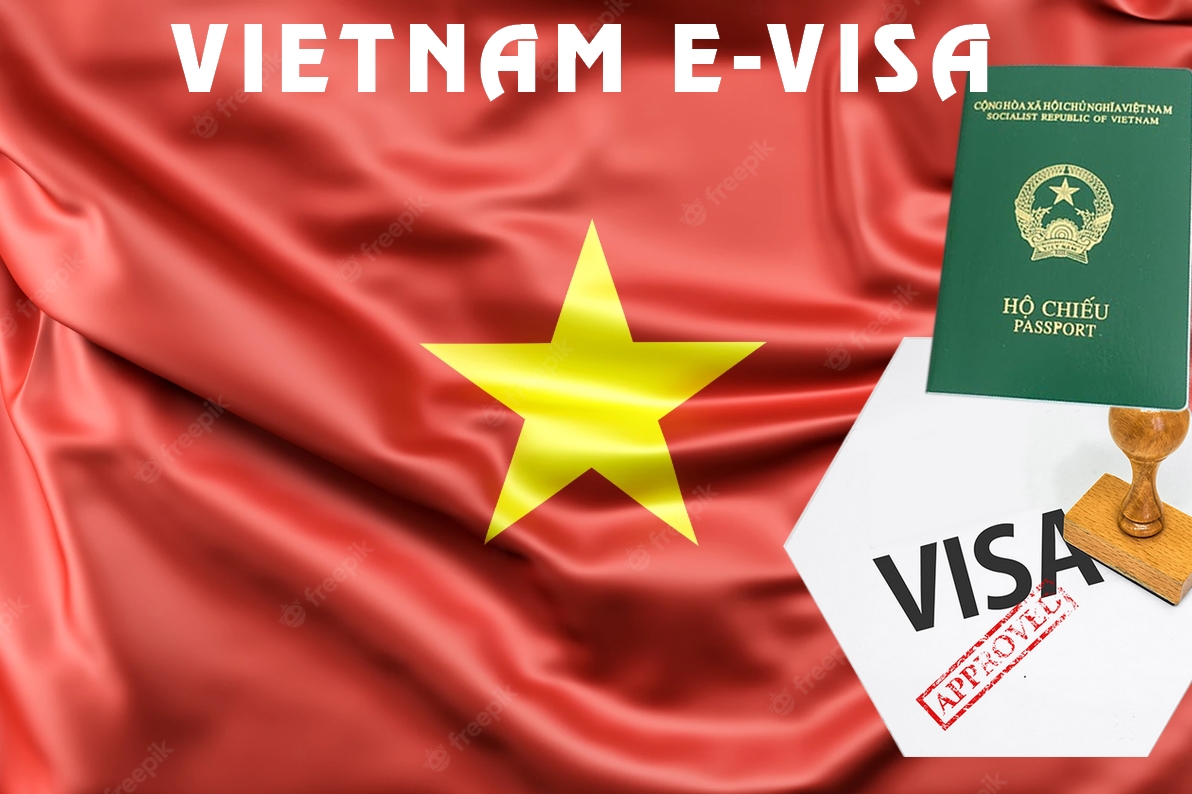
Before diving into the application process, it’s vital for Canadian citizens to confirm their eligibility, as this forms the foundation of a successful visa quest. The Vietnamese government has specific criteria that ensure applicants are genuine tourists, helping to maintain the integrity of their immigration system. This section explores these requirements in depth, offering practical advice and analytical insights to guide you through potential complexities, while emphasizing how meeting these standards can enhance your travel experience.
Basic Eligibility Criteria for Canadians
To qualify for a Vietnam tourist visa, Canadian citizens must first hold a valid passport that remains effective for at least six months beyond their planned entry date. This rule, common in many countries, underscores the importance of passport validity as a global standard for international travel. From a personal analysis, this requirement serves as a safeguard, preventing travelers from being stranded abroad due to expired documents. Beyond the passport, applicants need to demonstrate they have no criminal record or intentions to work in Vietnam, which involves a clean background check. Interestingly, this criterion reflects Vietnam’s emphasis on security, and for Canadians used to more lenient policies, it might seem stringent. However, viewing it as an opportunity to ensure your own safety can make the process feel more empowering.
In practice, eligibility also hinges on your purpose of visit; as a tourist, you must prove you’ll engage in leisure activities rather than employment or long-term residency. This means providing evidence like a detailed itinerary, which not only satisfies Vietnamese authorities but also helps you plan a fulfilling trip. Creatively, I see this as a chance for Canadians to curate an authentic experience, perhaps focusing on lesser-known sites like the Ha Long Bay or Sapa’s terraced fields. Moreover, understanding these basics allows for early detection of issues, such as needing to renew a passport, which could otherwise delay your plans.
Furthermore, certain health declarations or vaccinations might be implicitly required, especially in light of global events like pandemics. While not always explicit, preparing for this shows foresight and aligns with Vietnam’s health-focused policies. Personally, analyzing this eligibility layer reveals how it encourages responsible travel, fostering a deeper connection between visitors and the host country. In essence, meeting these criteria isn’t just about ticking boxes; it’s about embarking on your journey with integrity and preparedness.
Age and Health Considerations
Eligibility often involves age-related factors, where minors may need parental consent, adding an extra layer of documentation. For older Canadians, health declarations become crucial, ensuring you’re fit for travel. This sub-section analyzes how these elements influence applications.
Financial Proof and Its Role
Demonstrating financial stability is key, as it assures authorities you’ll support yourself during your stay. Canadians must show bank statements or proof of funds, which from my insight, promotes equitable tourism by filtering out unprepared travelers.
Exceptions and Special Cases for Canadians
Some Canadians, like those with dual citizenship, face unique eligibility rules. Understanding these exceptions through personal analysis helps navigate potential roadblocks effectively.
Types of Vietnam Tourist Visas Available to Canadians

When planning a trip, selecting the right visa type is crucial for Canadian travelers, as it determines your stay duration and flexibility in Vietnam. The Vietnamese government offers several options tailored to tourism, each with its own advantages and limitations. This section provides a detailed overview, blending factual information with creative insights to help you choose wisely and avoid common oversights.
Single-Entry Versus Multiple-Entry Visas
For short trips, a single-entry visa might suffice, allowing one entry for up to 30 days. In contrast, multiple-entry options cater to extended explorations. Personally, I analyze that this choice impacts your itinerary, enabling deeper cultural immersion.
Duration Options and Their Implications
Visas range from 15 to 90 days, affecting how you experience Vietnam’s seasons. This sub-section explores the pros and cons, offering insights into seasonal travel.
E-Visa vs. Visa on Arrival
The e-visa offers convenience for Canadians, while visa on arrival suits spontaneous plans. Through analysis, I highlight how technology enhances accessibility.
Visa Exemptions for Specific Scenarios
In rare cases, Canadians might qualify for exemptions, such as short business trips. Understanding these through creative lenses adds value to your planning.
Step-by-Step Guide: Applying for a Vietnam Tourist Visa from Canada
Applying for a visa can seem daunting, but with a structured approach, Canadian citizens can navigate it smoothly. This guide outlines the process in detail, incorporating personal tips to streamline your efforts and minimize stress. Remember, patience and accuracy are your allies in this endeavor.
Preparing Your Application Materials
Gathering documents is the first critical step, starting with your passport and photos. Ensure everything is in order to avoid rejections.
Submitting the Application Online or In-Person
Here are the key submission methods:
- Online e-visa portal for quick processing.
- Embassy visits for traditional applications.
This list clarifies options, enhancing your understanding.
Tracking Your Application Status
Once submitted, monitoring progress is essential. Use provided tools and follow up as needed.
Final Steps Before Travel
After approval, prepare for entry by reviewing entry requirements.
Vietnam Visa Application Documents Checklist for Canadians
Ensuring you have all necessary documents is pivotal for a seamless application. This section details the essentials, with insights to guide you.
Essential Passport and Photo Requirements
Your passport must be valid, and photos should meet specifications.
Proof of Accommodation and Itinerary
Book your stays and outline your plans to demonstrate your tourist intent.
Financial and Health Documents
Show proof of funds and any required health certificates.
Additional Supporting Papers
Include letters of invitation if applicable.
Processing Times and Fees for Vietnam Tourist Visas in Canada
Timelines and costs vary, so understanding them is key for budgeting your trip as a Canadian.
Standard Processing Durations
Applications typically take 3-5 days for e-visas.
Fee Structures and Payment Options
Fees range from $25 to $50, payable online.
Factors Influencing Processing Time
Holidays or high seasons can delay processing.
Cost-Saving Tips for Canadians
Apply early to avoid rush fees.
Common Mistakes to Avoid When Applying for a Vietnam Tourist Visa from Canada
Even experienced travelers make errors, but awareness can prevent them.
Overlooking Documentation Details
Double-check every form to avoid simple mistakes.
Misjudging Application Timelines
Start early to account for potential delays.
Ignoring Visa Type Suitability
Choose the right visa for your trip length.
Failing to Verify Entry Requirements
Ensure you know Vietnam’s border rules.
Extending Your Vietnam Tourist Visa While in Vietnam (for Canadians)
If your trip extends, knowing how to prolong your stay is useful.
Eligibility for Extensions
You can extend if you’re already in Vietnam.
The Extension Application Process
Visit local immigration offices with required documents.
Costs and Processing Involved
Extensions cost around $25 and take a few days.
Potential Pitfalls to Watch For
Avoid overstaying to prevent fines.
Conclusion
In summary, obtaining a tourist visa to Vietnam from Canada involves understanding eligibility, selecting the appropriate type, following a detailed application process, preparing necessary documents, accounting for processing times and fees, steering clear of common mistakes, and knowing how to extend your stay if needed. By approaching this with thorough preparation and personal insight, Canadian travelers can ensure a seamless and enriching experience in Vietnam.

